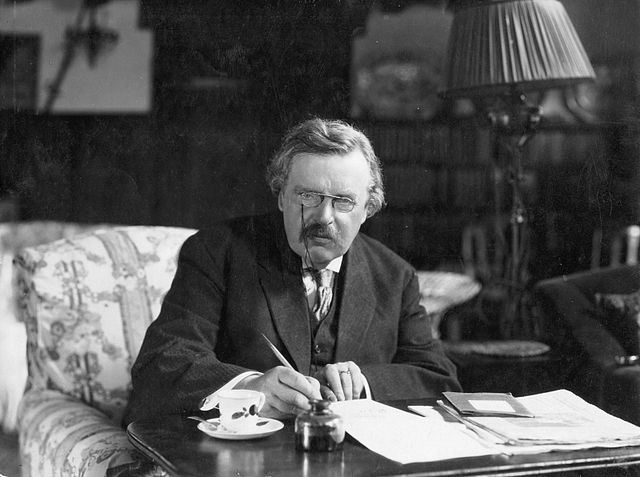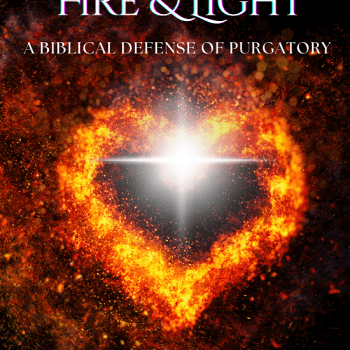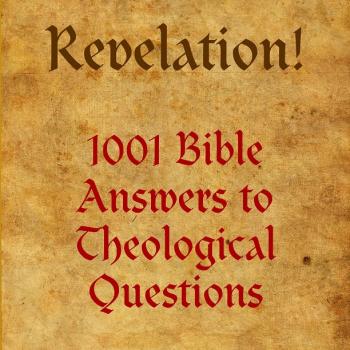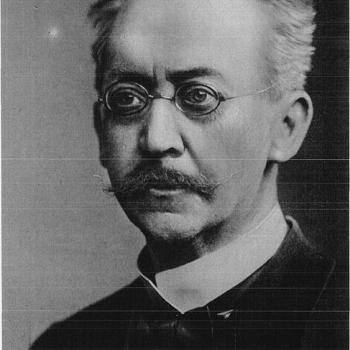Ben Douglass is a friend, fellow apologist, and orthodox Catholic of the self-described “traditionalist” variety. Recently, he posted on his site an interesting and provocative essay entitled Unsound Sticks, or, Arguments Catholics Shouldn’t Use (co-authored by David Palm and Nick E.). I thought I’d give my $00.02 worth and see how much our opinions line up, in an area of obvious relevance to my own work and his. His words (presented in their entirety) will be indented and in blue, and I’ll be answering as I read, per my usual socratic method.
* * * * *
The following is a list of arguments against Protestantism which, in our judgment, Catholics should not use, either because they are not true, or because, while they might be true, it is impossible to prove that they are, for a plausible alternative explanation of the data exists. This is certainly not a complete list: it is merely one missive fired for intellectual honesty. Neither is it an infallible list: it is possible that one or more of these arguments might be saved.
Good (wisely qualified) beginning. I hope my own input is conducive to further constructive discussion.
1. Do not allege that there are 33,000 Protestant denominations. This tally comes from the 2001 World Christian Encyclopedia, and it includes all denominations and paradenominations which self-identify as Christian, including Catholics, Orthodox, Protestants, Old Catholics, Mormons, Jehovah’s Witnesses, Seventh Day Adventists, Gnostics, Bogomils, etc. And even so, the number is too high. The World Christian Encyclopedia artificially inflates the number of Catholic “denominations” by counting Eastern Churches in communion with Rome as separate denominations. It likewise inflates the number of Eastern Orthodox “denominations” by counting Churches in communion with each other as distinct.
This reference lists 8,973 denominations under the heading “Protestant,” and 22,146 more under the heading “Independent.” Some, but not all, of the “independent” denominations may justly be described as Protestant. Still, these numbers may be inflated similarly to the numbers for Catholics and Orthodox. Suffice it to say that there are thousands of Protestant denominations.
Moreover, even if we could arrive at an accurate tally for Protestant denominations (20,000?), we still could not blame the whole of that number on Sola Scriptura. Some of these churches share substantial unity in faith, even if they are juridically independent (perhaps due to geography). And much of the disunity of faith within Protestantism, at least in the developed world, stems from efforts to subordinate the authority of Scripture (e.g., to various sexual perversions). In reality, if every Protestant denomination were serious and consistent in affirming and applying the rule of Sola Scriptura, the spectrum of Protestant belief would be significantly narrower. It bears emphasizing: the only thing for which we can directly blame Sola Scriptura is the extent to which it fails to provide unity in true faith and morals to those who sincerely adhere to it, e.g., “orthodox” Lutherans, Presbyterians, Baptists, Anglicans, Methodists, Pentecostals, Campbellites, etc.
I completely agree with the main point made here: regarding the alleged 33,000 denominations figure. That has been my stated, documented position since I wrote a paper on it almost five years ago, dated 4 September 2004: conceding the essential elements of the opposing position, on the same basis that Ben Douglass made his conclusions.
I also agree with Ben’s rejection of the notion that sola Scriptura is the sole cause of this denominationalism that exists (whatever the actual number may be). But I suspect that I would regard it as a relatively greater cause (among many) than he does. I’ve written a million things about both sola Scriptura (including, recently, an entire book) and denominationalism. It gets extremely complex. But here is a rough summary of my position in this regard from my paper where I asserted what Ben does about the bogus 33,000 figure:
Protestant apologists . . . (even ecumenical Protestant apologists and other thinkers) have a huge problem trying to biblically justify denominationalism and sectarianism and in determining the internal causes of same (which we Catholics would identify as: sola Scriptura, private judgment, so-called “supremacy of conscience,” the sectarian and exclusivistic mindsets, anti-institutionalism, anti-sacerdotalism, rejection of a binding apostolic tradition and Church, and of apostolic succession, episcopacy, even American cultural individualism running rampant within American Protestantism, etc.) that they have by no means ever resolved or even squarely faced.
In any event, I completely agree with Ben that sola Scriptura can be blamed for “the extent to which it fails to provide unity in true faith and morals.”
Conclusion for #1: substantial agreement.
2. Avoid the term “anti-Catholic.” The term is ill-defined. If it refers to a form of bigotry or prejudice then it could only be applied to individual Protestants (or other non-Catholics) on a case by case basis, and that only after they had exhibited a demonstrable pattern of bad faith. If, on the other hand, it refers to theological opposition to Catholicism, then it ought not to be used as a term of disdain. For Catholics are theologically opposed to Protestantism. Indeed, according to Dominus Iesus, Protestant “churches” are not, properly speaking, churches. The distinctives of Protestant theology are heresy, and the Council of Trent has pronounced anathema upon them. If, then, Protestants who believe Catholicism to be heretical are anti-Catholic, by the same standard Catholics who believe Protestantism to be heretical are anti-Protestant.
Here Ben and I strongly disagree, and my beef with him is based on what I would contend is faulty logic on his part, on several scores. I’ve written about this topic, too, at great length, and on many occasions. Anti-Catholic is not ill-defined at all, It has been widely, carefully defined by religious sociologists and historians (as I have thoroughly documented), and is in widespread use.
Some of the confusion here, in Ben’s mind, and in the minds of many Protestants I’ve encountered who object to the term on similar grounds, is the lack of understanding that the term can (like many descriptive terms) be used in more than one sense. Ben simply claims that it is “ill-defined.” But I document that it is very well-defined indeed. His analysis is subjective; mine is objective, based on solid academic work from many scholars. I’ve written till I’m blue in the face that my own use is strictly theological, and has to do with the classification of Catholicism as a theological system, as non-Christian. I’ve documented the use of the term in this sense, by sociologists and historians. It’s completely legitimate. The second application has nothing whatever to do with bigotry.
The term can also mean bigotry, Know-Nothingism, violence against Catholics, etc. I even freely concede (and always have) that it is used in the relevant academic literature more so in that sense than in the doctrinal or theological sense. But it doesn’t follow that there is no purely theological usage. If a word has more than one definition or sense than this additional sense can be properly used, as long as it is made clear what sense is intended (and no one has reiterated or made this more clear than I have through the years: exactly what I mean). We can’t simply stop using a perfectly legitimate word because someone has an illogical, emotional objection to it. That exhibits a liberal, almost purely subjective mentality: the exact sort of thing that Ben himself would object to when he opposes even legitimate ecumenical efforts, let alone illegitimate, bogus, liberal “ecumenical” endeavors.
Of course it can “only be applied to individual Protestants”: that is, the ones who deny that Catholicism is properly classifiable as fully Christian theology. These constitute only a tiny fringe element of all Protestants, as I have also always reiterated to the nth degree (and it is presupposed in the tons of things I have written in a positive vein about Protestants who are not at all anti-Catholic). Anyone who classifies all Protestants (or, routinely, the specific Protestant they are dealing with) as “anti-Catholics” simply because they disagree with Catholicism (which one would expect a Protestant to do by definition!) is a clueless dumbbell. I wholeheartedly agree insofar as Ben is saying that (and again, always have), but he takes his analysis too far.
The second illogical element of Ben’s argument in his #2 is the following assertion:
The distinctives of Protestant theology are heresy, and the Council of Trent has pronounced anathema upon them. If, then, Protestants who believe Catholicism to be heretical are anti-Catholic, by the same standard Catholics who believe Protestantism to be heretical are anti-Protestant.
He fails to draw crucial distinctions. The first sentence above is true, but the second makes illogical conclusions based on fallacy. The issue is not the presence of any heresy whatever. Obviously, both sides think the other has heretical elements, or there wouldn’t be a separation in the first place, of good men who hold different opinions, usually in good faith. Protestants do that internally as well, which is one reason why they form competing denominations. The crucial aspect here is to recognize that the Catholic holds the (trinitarian) Protestant to still be within the fold of Christianity; still a brother in Christ, whereas the tiny minority position of Protestant anti-Catholicism holds the Catholic Church to not even be fundamentally, essentially Christian, because it holds that we deny the gospel of grace and descend to rank idolatry every time we worship at Mass.
That is the crux of the issue. So there is no “definitional equivalence” in the sense that Ben tries to establish. Precisely because this is the case, “anti-Protestantism” as used in scholarly circles refers almost exclusively to legal and bigoted opposition to Protestantism (that I have also opposed in writing on many occasions), since there is no theological anti-Protestantism among Catholics, excepting the most extreme “traditionalists” who depart from the Mind of the Church.
Conclusion for #2: substantial disagreement.
3. Do not justify lack of charity by appealing to the example of St. Jerome. Not everything a saint does is necessarily worthy of emulation. St. Cyprian was insubordinate to the Pope. St. John Chrysostom said some indefensible things about Jews.
Absolutely right. Any Catholic who knows anything knows that even saints (besides the Blessed Virgin and very few other possible candidates) are not without faults and sin. Jerome’s level of charity in disputation was certainly not his finest attribute, and some of his methods wouldn’t work all that well today even if they could be ethically defended on some level.
Conclusion for #3: complete agreement.
4. Do not exaggerate the inadequacy of Sola Scriptura, as if it were not possible to understand the Bible at all without the Magisterium. In reality, if one, without help from any external authority, gives the Bible a diligent, sincere, and attentive reading, it will be possible to achieve the right answer to a fair number of questions. Sola Scriptura is inadequate because it cannot give the Church definitive answers to every question which she needs answered in order to function as the Church. For example, it cannot give the Church a definitive answer regarding whether Christian marriage is dissoluble. On the other hand, the Bible is clear enough that the text alone suffices to tell the Church that homosexuality is evil, among other things. If one fails to recognize this then it will be impossible to come to terms with the patristic witness to the clarity of Scripture.
This is a great point, and I am in complete agreement with it. It is a gross caricature of the Catholic position (whether held by Protestant critics or some undereducated Catholics) to hold that the Bible is utterly obscure. In other words, to deny the Protestant doctrine of perspicuity (clearness) of Scripture is not the same thing as asserting a radically unclear, confusing Scripture, in and of itself. It is far more a practical and epistemological and authority issue than an exegetical one. I have maintained the same position that Ben expresses here in many papers (and indeed this approach is presupposed in my high emphasis throughout my apologetics efforts, on “biblical evidence”.
My position in this respect is summarized in several entries from my recent [since revised] book about sola Scriptura:
420. Scripture is clear for the most part. I presuppose this in most of the writing I do, giving biblical evidences, but people have always disagreed on interpretation.
425. I think Scripture is pretty clear (I’ve always found it to be so in my many biblical studies), but I also know from simple observation and knowledge of Church history that it isn’t clear enough to bring men to agreement.
432. We believe in material sufficiency and the ability — very broadly considered — of the regenerate, Spirit-filled individual to understand much of the Bible. But we think that the “check” of historical interpretation is necessary as the final determinant of true doctrine and guarantee of unity.
433. Catholics believe that Scripture is largely and substantially clear but a teaching authority and limits to hermeneutics and exegesis are still desirable, necessary, and suggested in Holy Scripture itself. Look at, for example, the Jerusalem Council, or Peter’s early sermons where he “officially” interprets Scripture.
434. The U.S. Constitution might be regarded as true and wonderful and sufficient, etc. But the fact remains that this abstract belief only lasts undisturbed as long as the first instance of case law in which two parties claim divergent interpretations of the Constitution. It’s the same with Protestants.
437. Catholics don’t think Scripture is nearly as unclear and obscure as we are often caricatured to supposedly believe. But we do know that heretics throughout the centuries have distorted the Scripture, for whatever reason, so that an authoritative statement of orthodoxy becomes practically necessary in order to preserve unity as well as orthodoxy.
439. Many Protestants falsely assume that because Catholics believe Scripture does not function as a perspicuous authority apart from some human ecclesiastical authority, therefore Catholics must believe that every individual passage is an utter “mystery, riddle, and enigma” (to borrow from Churchill’s description of Russia). Of course, this doesn’t logically follow at all, and is a straw man.
470. The fact that the Law as a whole needed interpretation doesn’t rule out the possibility that certain parts of it were clear and apparent without the need for much interpretation (just as with the Bible as a whole). Catholicism does not require a totally obscure Bible at all. This is a myth. But could the entire Law and Bible be understood without the need of authoritative teachers? No. And that is rather obvious to this day. Protestants continue to absurdly claim that the Bible is perspicuous, yet fail to agree amongst themselves. And their reasons for why this is (stupidity or sin on the other guy’s part) are as absurd and silly as the original false premise.
478. It is not that Scripture is so unclear and esoteric that it is an utter mystery and an undecipherable “code” which only Holy Mother Church can break, and which no individual can possibly understand. Rather, the Church is required to speak authoritatively as to what Holy Scripture teaches, just as it spoke authoritatively with regard to what books were to be included in Scripture. In both instances, Holy Scripture is inherently what it is: God’s inspired, inerrant, infallible written revelation, but human error, sin, and inability to achieve unity of belief on the basis of individualism made the teaching Church absolutely necessary.
Conclusion for #4: complete agreement.
5. Do not insist that Protestants need to know, as a matter of faith, that Matthew wrote Matthew. According to the internal logic of their system, they do not. It suffices that the book of Matthew be inspired by God, regardless whether the traditional attribution is correct. As such, there is a limited value in asking Protestants the question, “How do you know that Matthew wrote Matthew?” If a particular Protestant does in fact accept the traditional authorship of Matthew, one might ask him on what basis he does so. If he replies that he does so on the basis of the patristic testimony, this can be an opportunity to expose any double standards he might hold as to the reliability of the patristic testimony at large. Nevertheless, it is fallacious to argue that, since Protestants need to know that Matthew wrote Matthew, and since Sola Scriptura cannot provide that knowledge to them, therefore Sola Scriptura is false.
I certainly believe that Matthew wrote the book bearing his name, but I agree that this argument achieves little or nothing in shooting down sola Scriptura. That belief-system has plenty enough holes in it without resorting to a non-starter like this.
Conclusion for #5: complete agreement.
6. Do not think that it suffices, for falsifying Sola Scriptura, to demonstrate that inspired oral Apostolic Tradition existed during the Apostolic era (2 Thess 2:15, etc.). Protestants grant this. One must proceed to demonstrate the perduring presence of this Tradition within the Church throughout all ages. Or at least, one must justify laying the burden of proof on Protestants to demonstrate that all oral Apostolic Tradition was eventually inscripturated.
I think Ben is absolutely correct again. Such an argument exhibits little understanding of an informed Protestant position. It is really the “inscripturation” issue that is key. Why is it that we should believe that all authoritative tradition should cease simply because the Bible was completed? That position is nowhere in the Bible itself, and is purely assumed or gratuitous on the Protestant’s part. Thus, the argument is far more nuanced and multi-faceted, and cannot be argued in the simple manner above. To do so only convinces a Protestant that the one using this argument doesn’t understand the position he wishes to oppose.
Conclusion for #6: complete agreement.
7. Do not argue that since St. Paul knew that the magicians who opposed Moses were named Jannes and Jambres (2 Tim 3:8), these names must have been preserved in the old covenant equivalent of Apostolic Tradition. According to the Catholic dogma of the inspiration of Scripture, God furnished the sacred authors with an infallible judgment in evaluating the truth of non-inspired and hence fallible historical records (Pius XII, Humani Generis, 38). As such, judging by the standard of Catholic theology (which conservative Protestants share on this point), it is possible that St. Paul learned these names from ordinary human historical records, and not from Jewish Sacred Tradition. To establish the presence of Sacred Tradition within the old covenant a Catholic must look elsewhere (e.g., 2 Chron 29:2).
I agree; another worthwhile point to make. This particular argument and ones like it suffice mainly to refute a less sophisticated Protestant argument that would hold that no non-biblical (i.e., Old Testament) traditions whatever were ever cited in the New Testament. But we mustn’t try to prove too much. Effective apologetics requires much study, to avoid such pitfalls.
Conclusion for #7: complete agreement.
8. Do not cite 2 Peter 1:20-21 against the Protestant principle of private interpretation of Scripture. St. Peter explains, in the preceding verses, that the Apostles did not invent their claims about the glory of the Lord Jesus Christ, but saw it first hand when He revealed it to them in the Transfiguration. He then exhorts his readers to heed the “prophetic word.” He continues, “No prophecy of Scripture is a matter of one’s own interpretation, because no prophecy ever came by the impulse of man, but men borne by the Holy Spirit spoke from God.” In context, the “interpretation” which St. Peter refers to is on the part of the prophet, not the reader. That is, St. Peter’s point is that no prophet made up his own prophecies. The prophets spoke what they received from God to speak, just as the Apostles spoke what they received from God to speak on Mount Tabor. Hence, their words rest on divine and not human authority.
This is an interesting point that is valid to a degree, but only secondarily, and I think Ben over-argues insofar as he believes that the passage has no implication against a sola Scriptura position whatever. I think it does have at least a secondary application in that respect. Not all reputable Catholic interpretations of this passage agree with Ben’s take. For example, A Catholic Commentary on Holy Scripture (edited by Dom Bernard Orchard, 1953) allows Ben’s position as a secondary possibility, but its first comment is quite otherwise:
It is of prime importance to know that prophecy of Scripture is not subject to private interpretation by every individual, as the false teachers assume it is, because prophecy is from God, and is not like mere human conjectures of future possibilities. Scriptural prophecy is divine revelation, and concerns future events known to God alone. Christ, and those appointed by him to teach in his name, have the authority to interpret God’s revelations.
The well-regarded, orthodox Navarre Bible concurs:
20. Prophecy and Sacred Scripture in general are not man-made; they are the word of God: there is nothing in the Bible that is/not inspired by the Holy Spirit (v. 21). Therefore, against the false teachers of his time and of all eras, the sacred writer rejects any interpretation of Scripture based exclusively on human ingenuity; as the Second Vatican Council reminds us, it is “the Church which exercises the divinely conferred commission and ministry of watching over and interpreting the Word of God” (Dei Verbum, 12).
These words repeat the teaching of the Council of Trent: “No one should dare to rely on his own judgment in matters of faith and morals […] to distort Sacred Scripture to fit meanings of his own that are contrary to the meaning that holy Mother Church has held and now holds; for it is her office to decide on the true sense and interpretation of Sacred Scripture” (De libris sacris; cf. Vatican I, Dei Filius, chap. 2).
21. This verse makes it clear that there is such a thing as biblical interpretation (cf. 2 Tim 3:13ff), and it specifies what it is. Scripture has been written under the inspiration of the Holy Spirit; God and the human author are involved in the writing of the sacred books in such a way that the end-product is, at one and the same time, entirely of God’s making and entirely of man’s.
So does Haydock’s Bible Commentary for this passage:
Ver. 20. No prophecy of the scripture is made by private interpretation; or, as the Protestants translate it from the Greek, is of any private interpretation, i.e. is not to be expounded by any one’s private judgment or private spirit. (Witham) — The Scriptures cannot be properly expounded by private spirit or fancy, but by the same spirit wherewith they were written, which is resident in the Church.
Ver. 21. For prophecy came not by the will of man at any time. This is to shew that they are not to be expounded by any one’s private judgment, because every part of the holy Scriptures is delivered to us by the divine spirit of God, wherewith the men were inspired who wrote them; therefore they are not to be interpreted but by the spirit of God, which he left, and promised to his Church to guide her in all truth to the end of the world. Our adversaries may perhaps tell us, that we also interpret prophecies and Scriptures; we do so; but we do it always with a submission to the judgment of the Church, they without it. (Witham)
Pope Benedict XV (not XVI!) interpreted the passage in the same fashion:
16. Would that other ecclesiastical teachers learn from him how skilfully, how diligently they must work in preaching the doctrine of Christ! And indeed the piety of the faithful has nothing stable and advantageous except to adhere entirely to the mysteries and precepts of the faith. Those who legitimately teach the Sacred Scriptures are warned by the example of the Edessine not to distort the Sacred Scriptures to the good pleasure of their own inclinations, nor, in investigating them, to depart a finger’s breadth from the constant interpretation of the Church. “No prophecy of Scripture originates from private interpretation. For never by will of man was prophecy brought forth. But holy men of God spoke as they were moved by the Holy Spirit.”[33] And that Spirit who has spoken to men by the prophets is the same one who for the Apostles “opened their minds that they might understand the Scriptures”[34] and the same who constituted his Church to announce, interpret, and preserve revelation, so that it might be “the pillar and mainstay of truth.”[35]
Notes:
33. 2 Pt 1.20-21.
34. Lk 24.45.
35. I Tm 3.15.
(Principi Apostolorum Petro, 10 October 1920)
Pope John Paul II (the Great) did as well:
I mention this because there is the temptation to interpret Sacred Scripture apart from the Church’s long tradition of faith, using modes of interpretation proper to contemporary literature or journalism. That creates the danger of over- simplification, of falsification of revealed truth, and even the adaptation of that truth to the demands of an individualist philosophy of life or an ideology, accepted a priori. Saint Peter the Apostle opposed attempts such as this when he wrote: “First of all you must understand this, that no prophecy of Scripture is a matter of one’s own interpretation” (2 Pt 1:20). “The task of giving an authentic interpretation of the Word of God . . . has been entrusted to the living teaching office of the Church alone, whose authority in this matter is exercised in the name of Jesus Christ” (Dei Verbum, 10).
I cross-referenced another passage in my book on sola Scriptura: one that is relatively clearer and non-controversial in its application:
2 Peter 3:15-16 . . . Paul wrote to you according to the wisdom given him . . . in all his letters. There are some things in them hard to understand, which the ignorant and unstable twist to their destruction.
I suppose Ben could continue to (quite ironically) hold fast to his private interpretation of the passage and classify the opinions of very reputable orthodox Catholic commentaries and at least two popes as “dumb Catholic arguments.” He can if he likes, but I must respectfully disagree with him on this particular one.
Conclusion for #8: substantial disagreement.
9. Never attack the textual integrity of the Bible. The manuscript tradition is sufficiently robust that it is possible to reconstruct, to a moral certainty, the original reading of the vast majority of the New Testament. Instances where the original text is indeterminate, although they are significant, are far between and are not determinative of any major theological debate.
Of course.
Conclusion for #9: complete agreement.
10. Never compromise biblical inerrancy in order to score points against Protestantism. For instance, Protestants will often allege that the books of Maccabees cannot be inspired Scripture because they contain contradictory accounts of the death of Antiochus Epiphanes. And unfortunately, sometimes Catholics, instead of defending the books of Maccabees by harmonizing their data, will retort that by that standard the books of Samuel and Chronicles cannot be inspired Scripture either since they contain contradictory accounts of the death of Saul. This defense is thoroughly inadmissible: it invalidates the authentic Catholic standard regarding the necessary characteristics of Scripture (one of which is inerrancy) just as well as Protestant standard.
Of course again.
Conclusion for #10: complete agreement.
11. Do not jump to James 2:24 in order to counter every Protestant proof-text for justification by faith alone. Given that Catholic theology is true, it ought to be able to account for every text of Scripture on its own terms and in its own context. Hence, there is no escaping the duty to do exegesis, even of, especially of, Romans. It will not satisfy any Protestant to object to his proof-text that “it can’t mean that because then it would contradict this other passage over here.” The Protestant will have his own understanding of that other passage over there as well. Again, there is no escaping the duty to read the Protestant proof-texts closely and carefully and to furnish justified interpretations which are consistent with Catholic dogma.
Absolutely. I would not, of course, discount the import of James 2:24 altogether (nor do I think Ben would), but I completely agree that by itself it proves little, and that there must be a comprehensive effort to deal with the Protestant prooftexts in a manner that they rarely accord to us in dealing with the texts we produce in favor of our beliefs.
Conclusion for #11: complete agreement.
12. Do not descend into arguments over whether we should give priority to Jesus or St. Paul as our teacher of the doctrine of justification. Granted, some Protestants err in claiming that Jesus left it to St. Paul to teach the Church the theology of salvation. However, it is no sound rebuttal, but simply the photographic negative of the Protestant error, to boast that Catholics give primacy to the Gospels.
Excellent (albeit self-evident) point.
Conclusion for #12: complete agreement.
13. If you wish to cite Acts 7:51 against the Calvinist doctrine of irresistible grace, be forewarned that there exists a cogent rebuttal. St. Stephen tells the Sanhedrin, “You stiff-necked people, uncircumcised in heart and ears, you always oppose [Gk., antipiptete] the Holy Spirit.” Literally, they fall against, meaning they fight against or oppose, the work of the Holy Spirit. Those who quote this passage against the doctrine of irresistible grace assume that this means they are resisting and hence rendering ineffectual that which the Holy Spirit is trying to work in their own souls. I.e., the Holy Spirit is working on converting them, but they are resisting Him. However, in context this passage more probably means simply that they are fighting against and opposing the work which the Holy Spirit is accomplishing in others, by killing the prophets in attempts to silence the word which God is speaking through them and persecuting the saints who hear it. “Which of the prophets did not your fathers persecute?” (Acts 7:52) The devil resists the Holy Spirit in the same sense.
I would have to do in-depth research on this (which I have neither time nor energy to do right now), so I’ll “abstain” and render no opinion on it at the moment.
Conclusion for #13: no particular opinion at this time.
14. Similarly, if you wish to cite Matthew 23:37 against the Calvinist doctrine of irresistible grace, be forewarned that there exists a cogent rebuttal. Jesus says, “O Jerusalem, Jerusalem, killing the prophets and stoning those who are sent to you! How often would I have gathered your children together as a hen gathers her brood under her wings, and you would not!” Before one could validly apply this text against irresistible grace, one would have to prove the identity of the ones whom Jesus willed to gather together and the ones who would not. For if they are different people, then, as above, all this text means is that the wicked are opposed to God’s saving action in others. And in fact, context indicates that they are different people. “Jerusalem” refers to the Jewish leadership, the scribes and Pharisees (cf. Matt 23:13, 31, 34-35), whereas “your children” refers to innocent Jews suffering underneath them.
Ditto from the last reply.
Conclusion for #14: no particular opinion at this time.
15. Do not cite Ephesians 2:10 against justification by faith alone. This passage, even rightly interpreted, contains nothing inconsistent with Protestant theology. Having been saved by grace through faith, we ought to do the good works which God prepared beforehand for His children to do. This statement does not require that these good works should themselves be salvific, but is consistent with the supposition that these works are merely the necessary outgrowth of a salvation already completed. In order to establish that good works are salvific, the Catholic must look elsewhere.
That’s right. In and of itself, little is proved one way or the other. In conjunction with many other passages, it can be nicely fit into the Catholic framework.
Conclusion for #15: complete agreement.
16. Avoid making hay about Martin Luther adding the word “alone” to Romans 3:28. While the word is indeed absent from the Greek text, Luther was not the first to regard it as a justifiable gloss. That it is not in fact justifiable makes Luther’s addition an exegetical error, but this is not the same thing as a blatant perversion.
I’ve never put much stock in this argument, and agree that it doesn’t accomplish much in Protestant-Catholic discussion.
Conclusion for #16: complete agreement.
17. Never ask, if a Protestant believes his salvation is eternally secure, what motivation he has to do good and avoid evil. The answer is obvious (and embarrassing to the Catholic who asked the question): the love of God. The love of God is sufficient motivation to pursue holiness with all vigor, absent any considerations of self interest. The most that a Catholic can argue in this respect is that Catholic theology, which furnishes men with both the baser motive of self interest and the loftier motive of the love of God, is superior in the practical order. For, in many cases, the baser motive will effectually turn a man from evil to good whereas the loftier motive, even though it should have, did not.
Yep; a thoroughly dumb and stupid argument that is to be utterly avoided . . .
Conclusion for #17: complete agreement.
18. Do no otherwise than reference ancient documents for what they are. If a document is of probable authenticity (i.e., its author is probably the person it is attributed to), reference it as probably authentic. If it is of possible authenticity, reference it as possibly authentic. If it is spurious, reference it as spurious, and use it simply to document the beliefs of an anonymous ancient Christian author.
Sure; I have no problem with this, though there are disagreements on these matters, as would be expected.
Conclusion for #18: complete agreement.
There are so many good arguments for Catholicism that the religion will do just fine without the arguments on this list.
Indeed. Good job, Ben (and co-authors David and Nick), and in the few places where we disagree, I hope there can be further constructive and enjoyable discussion.
Substantial Agreement: 1 of 18 (1)
Substantial Disagreement: 2 of 18 (2, 8)
Abstain: 2 of 18 (13-14)
Thus, I completely agree with Ben (not counting my two abstentions) 81% of the time, and if I include the one “substantial agreement,” I agree with him 87.5% of the time. The disagreement is only 12.5% of the time, and even then it is not complete disagreement, and there is some common ground. So anyone who would be foolish enough to conclude that I would have some huge, massive disagreement with Ben on these points is all wet and doesn’t know what he is talking about (which, alas, is nothing new in my critics’ often clueless appraisals of my work). I disagreed with two things out of 18. Big wow. Any two Protestants one could find would disagree on far more than that, to be sure. So the transparently cynical “divide and conquer” strategy of finding differences among Catholic apologists will fail with regard to this list of 18 suggested “dumb apologetic arguments.”
* * * * *
The original post that I comment on above has since been exploited and distorted in several non-Catholic circles, with the leading implication being that these bad arguments are supposedly used quite a bit by the mainstream and most well-known Catholic apologists. David Palm has written a very helpful clarifying post, entitled, A Bad Argument is a Bad Argument. He wrote:
It is true that certain Catholic apologists, even “mainstream” ones, have used one or more of the arguments in the list. . . . But I personally consider many (most) of these arguments to be thoroughly peripheral. And certainly none of these arguments need serve as the foundation of anybody’s “arsenal”. Catholics can and do regularly deploy much better . . .
I do want to emphasize that I did not participate in formulating our list in order to cast aspersions on the moral integrity (or intelligence) of any Catholic apologist, much less the Catholic apologetics “enterprise” in general. Mr. Davis’ spin struck a particularly sour note, I think, given the spirit of what we were trying to accomplish.
I commended him in the combox:
Excellent piece, and big step in the direction of damage control, given how your article has been interpreted in a twisted fashion by several critics of Catholicism, with my own name figuring prominently (and predictably) in two of the more notoriously cynical and inaccurate treatments.
But I was very proud to be up there in the Hall of Shame with my good friends Pat Madrid, Steve Ray, and John Martignoni. It’s truly a greater honor to be smeared alongside them (for all the wrong, deluded, self-interested reasons) than it is to be praised.
Thus, I appreciate your clarification on a personal level, but I am infinitely more concerned for the Catholic apologetics movement as a whole. I don’t care all that much, ultimately, if I am personally attacked, but I care a great deal about the success of the Catholic apologetics enterprise.
It is attacked and derided precisely because it has been rather remarkably successful in the last 15-20 years. That threatens some folks, and if they lack arguments (which they often do!), they go right to personal attack and smearing tactics. YAWN. . . .
Kudos again for the fine job on this post. Whether it has the desired effect remains to be seen. At the very least, there should be retractions or at least editing in some quarters. I’ll be pleasantly shocked if that happens, but not surprised at all if it doesn’t.
* * * * *


















